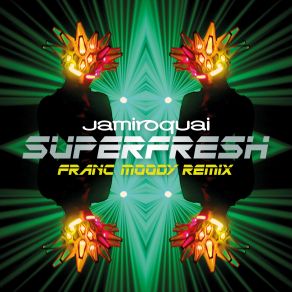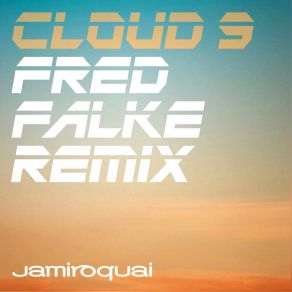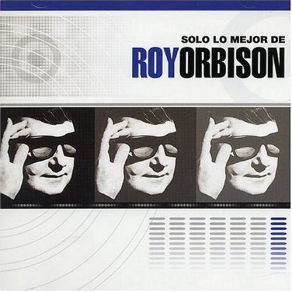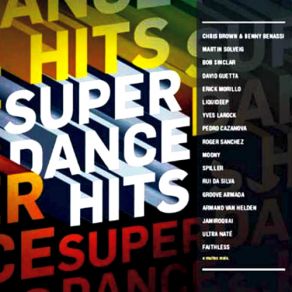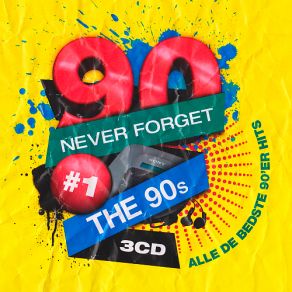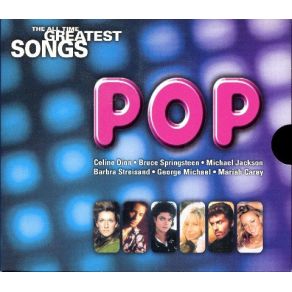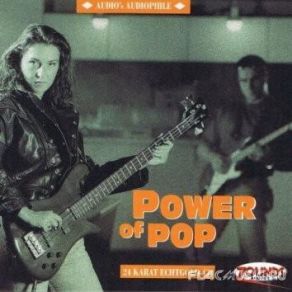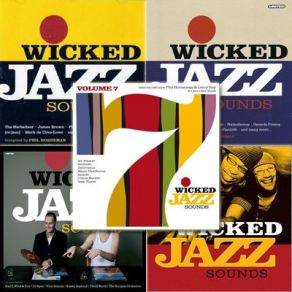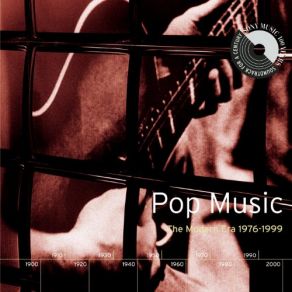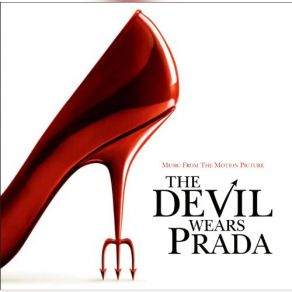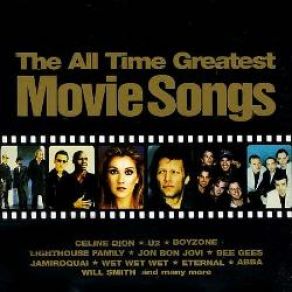Jamiroquai
Wikimp3 information about the music of Jamiroquai. On our website we have 42 albums and 70 collections of artist Jamiroquai. You can find useful information and download songs of this artist. We also know that Jamiroquai represents Pop genres.
Biography
[Edit]Active beginning in the early '90s, Jamiroquai has amassed a steady stream of hits in its native U.K. and experienced chart success in just about every other area of the world, with an irresistible blend of house rhythms and '70s-era soul/funk (the latter, especially, leading early on to claims of Stevie Wonder imitations). The band has gone though several lineup changes during their career, but through it all their leader has remained singer/songwriter Jason Kay (aka J.K.). Born on December 30, 1969, in Stretford, Manchester, Kay's mother, Karen, was a jazz singer who regularly performed at nightclubs, and in the '70s had her own TV show. After leaving home at the age of 15, Kay found himself homeless and in trouble with the law (by committing petty crimes to get by). After a near-death experience (where he was attacked and stabbed) and being arrested for a crime he did not commit, Kay decided to return home, where he chose to pursue a legitimate career over crime: music. Kay didn't have a band to back up his compositions, but he quickly came up with his future project's name, Jamiroquai, a name that combined the name of a Native American tribe (the Iroquois) along with the music-based word, jam.
Kay's home demos caught the attention of the record label Acid Jazz, which issued Jamiroquai's debut single "When You Gonna Learn?" in late 1992. With Kay enlisting the help of others (Jamiroquai's best-known lineup included drummer Derrick McKenzie, keyboard player Toby Smith, bassist Stuart Zender, and vibraphonist Wallis Buchanan), the single was a success and was soon followed by a long-term and lucrative recording contract with Sony. Jamiroquai's full-length debut, Emergency on Planet Earth, followed in 1993 and became a major hit in their native England (peaking at number one on the charts), spawning such Top Ten hit singles as "Too Young to Die" and "Blow Your Mind." The band's second release, The Return of the Space Cowboy in 1995, managed to steer Jamiroquai clear of the sophomore jinx that affects so many up-and-coming bands by out-selling its predecessor in Europe and was a sizeable hit in Japan, as well.
With most of the world dancing to Jamiroquai's beat, America was next in line for the band's third effort, 1996's Traveling Without Moving. The album spawned the worldwide hit "Virtual Insanity," for which an award-winning video was filmed and helped the album achieve platinum status in the States by the year's end (as well as a highlighted performance at the 1997 MTV Video Music Awards). Despite achieving breakthrough success, bassist Zender opted to leave the group during sessions for its follow-up, which resulted in Kay scraping almost an entire album's worth of new tracks in order to start from scratch with a new bassist (the slot would eventually go to newcomer Nick Fyffe). During the downtime, Jamiroquai contributed a brand-new track, "Deeper Underground," to the soundtrack for the 1998 movie Godzilla.
But the long wait between albums seemed to kill Jamiroquai's momentum in the U.S., where a fourth release overall, 1999's Synkronized, was largely ignored (yet back home and across the globe, it was another major commercial success). Subsequently, it appeared as though the majority of Jamiroquai's U.S. media attention focused on non-music related events, such as the band turning down a million-dollar offer to play at a concert on New Year's Eve 1999, and when Kay was accused of assaulting a tabloid photographer (with the charges later being dropped). It didn't take Jamiroquai as long the next time around to issue another album, with A Funk Odyssey hitting the racks two years later in 2001. Kay also helmed a volume in the mix-album series Late Night Tales. From there, Jamiroquai spent the next two years gathering material for a sixth studio album. Dynamite, which was finally released in 2005, was written and recorded in Spain, Italy, Costa Rica, Scotland, New York, Los Angeles and Jamiroquai's own Buckinghamshire studio. The group's seventh studio album, 2010's Rock Dust Light Star, dutifully blended the disco and electronic leanings of 2005’s Dynamite with the organic, roots-based soul of the band's 1993 debut.
Title: A Funk Odyssey
Artist: Jamiroquai
Genre: Electronica, Hip Hop/R&B, Soul, Jazz, Rock, Punk Rock, Dancefloor, Pop, Dance Pop, Alternative, Bop
Title: Greatest Hits (CD1)
Artist: Jamiroquai
Title: Superfresh (Oliver Heldens Remix) (Single)
Artist: Jamiroquai
Genre: Electronica, Acid Jazz, Dancefloor, Pop, Dance Pop, Funk
Title: Late Night Tales: Jamiroquai (Remastered)
Artist: Jamiroquai
Genre: Electronica, Hip Hop/R&B, Soul, Rock, Dancefloor, Disco, Dance Pop, Funk
Title: A Trip To The Mystery Planet
Artist: Jamiroquai, Jamiroqai
Genre: Electronica, Acid Jazz, Dancefloor, Dance Pop, Funk
Title: The Return of the Space Cowboy
Artist: Jamiroquai
Genre: Electronica, Hip Hop/R&B, Soul, Jazz, Rock, Dancefloor, Dance Pop, Alternative, Bop
Title: Cosmic Girl - EP
Artist: Jamiroquai
Genre: Hip Hop/R&B, Soul, Jazz, Rock, Dancefloor, Pop, Dance Pop, Alternative, Bop
Title: Return of the Space Cowboy
Artist: Jamiroquai
Genre: Electronica, Hip Hop/R&B, Soul, Jazz, Rock, Dancefloor, Pop, Dance Pop, Alternative, Bop
Title: High Times (Singles 1992-2006) [Remastered 2006]
Artist: Jamiroquai
Genre: Electronica, Hip Hop/R&B, Soul, Rock, Punk Rock, Dancefloor, Pop, Dance Pop, Alternative
Title: High Times: Singles 1992-2006
Artist: Jamiroquai
Genre: Electronica, Hip Hop/R&B, Soul, Rock, Dancefloor, Pop, Dance Pop, Alternative
Title: Feels Just Like It Should - Single
Artist: Jamiroquai
Genre: Electronica, Hip Hop/R&B, Soul, Rock, Dancefloor, Dance Pop, Alternative
Title: Emergency On Planet Earth
Artist: Jamiroquai
Genre: Electronica, Hip Hop/R&B, Soul, Jazz, Rock, Dancefloor, Pop, Dance Pop, Alternative, Bop
Title: Rock Dust Light Star
Artist: Jamiroquai
Genre: Electronica, Hip Hop/R&B, Soul, Rock, Dancefloor, Dance Pop, Alternative
Title: Synkronized
Artist: Jamiroquai
Genre: Electronica, Hip Hop/R&B, Soul, Jazz, Rock, Punk Rock, Dancefloor, Pop, Dance Pop, Alternative, Bop
Title: Deeper Underground
Artist: Jamiroquai
Genre: Electronica, Hip Hop/R&B, Soul, Jazz, Rock, Dancefloor, Pop, Dance Pop, Alternative, Bop
Title: Canned Heat
Artist: Jamiroquai
Genre: Electronica, Hip Hop/R&B, Soul, Jazz, Rock, Dancefloor, Dance Pop, Alternative, Bop
Title: High Times - Singles 1992-2006
Artist: Jamiroquai
Genre: Electronica, Hip Hop/R&B, Soul, Rock, Dancefloor, Pop, Dance Pop, Alternative
Title: Travelling Without Moving
Artist: Jamiroquai
Genre: Electronica, Hip Hop/R&B, Soul, Jazz, Rock, Punk Rock, Dancefloor, Pop, Dance Pop, Alternative, Bop
Title: Feels Just Like It Should (Album Version With New Middle 8) - Single
Artist: Jamiroquai
Genre: Pop
Collections
Title: Solo Lo Mejor De Roy Orbison
Genre: Pop
Title: Veronica Album Top 1000 Allertijden 2013
Genre: Hip Hop/R&B, Soul, Rock, Pop
Title: Cool Club Style 2013
Genre: House, Dancefloor
Title: Dubstep Damage
Genre: Electronica, Dubstep
Title: Cross Extended Clubbing
Genre: Dancefloor, Club/Dance
Title: Greatest Pop 2013 (CD1)
Genre: Pop
Title: Ministry Of Sound: Anthems 90s (CD3)
Genre: Pop
Title: Rockstar Playing
Genre: House, Club/Dance, Progressive
Title: Kevin & Perry 'Go Large'
Genre: Theatre/Soundtrack
Title: Pacha Ibiza 40 Years 1973 - 2013 (CD2)
Genre: Club/Dance, Disco, Funk
Title: M. O. S. 90'S Groove Vol. 2 (CD1)
Genre: Dancefloor, Pop
Title: M. O. S. 90'S Groove Vol. 2 (CD1)
Genre: Dancefloor, Pop
Title: 90s Groove, Vol. 2 - Ministry Of Sound (CD1)
Genre: Hip Hop/R&B, Soul, Dancefloor, Disco, Pop
Title: Sea Dance 2013
Genre: Dancefloor, Pop
Title: Pure... Dancefloor
Genre: Pop
Title: 101 Ibiza Anthems (CD3)
Genre: Dancefloor
Title: Ibiza Chillout Classics (CD3)
Genre: Electronica, Soul, Jazz, Pop, Funk
Title: Ministry Of Sound Chillout Classics (CD1)
Genre: Dancefloor
Title: 101 90s Hits (CD2)
Genre: Electronica, Rock, Pop
Title: Die Hit Giganten - Best Of 90s (CD1)
Genre: Pop
Title: Die Hit Giganten (CD1: Best Of Sommerhits)
Genre: Rock, Dancefloor, Latin, Pop
Title: De Zwarte Lijst Vol. 02 - Feel The Flow - (CD1)
Genre: Hip Hop/R&B, Soul, Disco, Pop, Funk
Title: Nu Jazz Cool
Genre: Electronica
Title: Another Night (CD2)
Genre: Dancefloor
Title: Die Hit - Giganten - Best Of 90's (CD1)
Genre: Dancefloor, Pop
Title: Die Hit - Giganten - Best Of Dance (CD2)
Genre: Dancefloor, Pop
Title: Magic Summertime (CD2)
Genre: Pop
Title: Picanto Chill (CD3)
Title: Super Dance Hits (CD2)
Genre: House, Dancefloor, Club/Dance
Title: The Devil Wears Prada (OST)
Genre: Theatre/Soundtrack
Title: Fetenhits Funk And Soul
Genre: Hip Hop/R&B, Soul, Funk
Title: Funky Evening
Genre: Funk
Title: Blue Beats And Chilled Jazz Grooves
Genre: Nu Jazz
Title: 100% Acid Jazz
Genre: Acid Jazz
Title: Acid Jazz Classics Vol. 1
Title: Acid Jazz Classics, Volume 2
Title: Acid Jazz Classics Vol. 3
Title: Sliding Doors (Original Soundtrack)
Genre: Theatre/Soundtrack
Title: Viva Hits Vol. 14 (CD2)
Genre: Electronica, Hip Hop/R&B, Reggae, Pop
Title: 100X Winter 2013 (CD2)
Genre: Pop
Title: Top Gear Driving Anthems (CD3)
Genre: Electronica, Rock, Pop
Title: Het Beste Uit De Q-Music Millennium Top 1000 Vol. 4 (CD1)
Genre: Pop
Title: Buenos Dias, Javi Nieves
Genre: Rock, Dancefloor, Pop
Title: 1998 Grammy Nominees
Genre: Hip Hop/R&B, Pop
Title: The All Time Greatest Songs - 07 - Pop
Genre: Pop
Title: Rock And Roll Enganchados - 60s 70s (CD4)
Genre: Rock & Roll, Pop
Title: Esthetics Lounge Vol. 16
Genre: Lounge
Title: Wave Music Vol. 12 (Deluxe Edition)
Genre: Jazz, Pop, Instrumental, Lounge, Smooth Jazz, Bossanova
Title: Die Hit Giganten Best Of Sommerhits (CD1)
Genre: Dancefloor, Pop
Title: Audiophile Vol. 10 - Power Of Pop
Genre: Pop
Title: Pacha Ibiza Chillout Classics CD3
Genre: Chill Out
Title: Jools Holland's Big Band
Genre: Blues
Title: Viva Hits Vol. 7 (CD2)
Genre: Electronica, Hip Hop/R&B, Rock, Pop
Title: Nick The Nightfly-Yesterday Today Tonight
Genre: Jazz
Title: VH1's 100 Best Songs Of The 90s (CD2)
Genre: Hip Hop/R&B, Rap, Rock, Hard Rock, Heavy Metal, Dancefloor, Pop, Pop Rock, Alternative, Theatre/Soundtrack
Title: 100 Best Songs Of The 90s (CD2)
Genre: Hip Hop/R&B, Rock, Alternative Rock, Hard Rock, Heavy Metal, Dancefloor, Pop, Pop Rock, Theatre/Soundtrack
Title: Wicked Jazz Sounds Vol. 7 (CD1)
Genre: Electronica, Hip Hop/R&B, Soul, Jazz, Nu Jazz, Disco, Funk
Title: New Woman Love Songs
Genre: Pop
Title: Pro Jazz
Genre: Jazz, Smooth Jazz
Title: Ministry Of Sound - Anthems 90s Vol. 2 (CD2)
Genre: Dancefloor, Pop
Featuring albums
Title: The Devil Wears Prada (Music from the Motion Picture)
Artist: Various Artists
Genre: Theatre/Soundtrack
Title: Good Times 3
Artist: Joey Mbe & Norman Jay Mbe
Genre: Electronica, House, Hip Hop/R&B, Soul, Dancefloor, Disco, Pop, Dance Pop
Title: Kraak & Smaak - The Remix Sessions
Artist: Kraak & Smaak
Genre: Electronica, House, Hip Hop/R&B, Soul, Jazz, Dancefloor, Dance Pop, Funk, Bop
Title: Late Night Tales Presents After Dark
Artist: Various Artists
Title: Napoleon Dynamite (Original Motion Picture Soundtrack)
Artist: Various Artists
Genre: Theatre/Soundtrack
Title: Woodstock '99
Artist: Various
Genre: Rock, Alternative Rock, Hard Rock, Metal, Alternative Metal, Pop, Alternative
Title: The Remix Sessions
Artist: Kraak & Smaak
Genre: Electronica, House, Hip Hop/R&B, Soul, Jazz, Dancefloor, Dance Pop, Funk, Bop
Title: Kraak & Smaak - The Remix Sessions
Artist: Various Artists
Genre: Electronica, Dancefloor, Dance Pop
Title: Global Basics - Dance Music for the Millennium
Artist: Various Artists
Genre: Dancefloor, Dance Pop
Title: Late Night Tales Present After Dark (CD1)
Artist: Bill Brewster
Genre: Deep House, Soul, Disco, Funk
Title: Late Night Tales Present After Dark (CD2)
Artist: Bill Brewster
Genre: Deep House, Soul, Disco, Funk
Title: LateNightTales
Artist: After Dark
Genre: Downtempo, Trip Hop, Electronica, Soul, Indie Rock, Disco, Funk, Experimental
Title: The Devil Wears Prada (Original Soundtrack)
Artist: Theodore Shapiro
Genre: Theatre/Soundtrack
Title: Ministry Of Sound (CD1)
Artist: Club Classics
Genre: Trip Hop, Garage, Eurodance, Soul, Acid Jazz, Nu Disco, Funk
Title: Dua Lipa & The Blessed Madonna – Club Future Nostalgia
Artist: Dua Lipa, The Blessed Madonna
Genre: Electro, Hip Hop/R&B, Dancehall, Nu Disco, Pop, Alternative




















